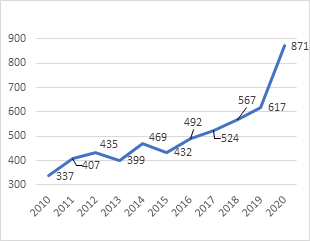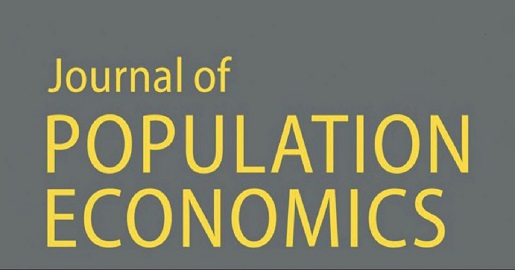The Journal of Population Economics announces a webinar for May 27, 16:00-18:00 CET (Maastricht/Dutch time) to present a selection from the newly published issue 34(3)/2021. The event is supported by GLO and hosted by UNU-MERIT via Zoom. Editor-in-Chief Klaus F. Zimmermann (UNU-MERIT, Maastricht University and GLO) will welcome the participants. Managing Editor Michaella Vanore, (UNU-MERIT, Maastricht University and GLO) will guide through the event. Editor Oded Galor (Brown University and GLO), and Managing Editor Madeline Zavodny (University of North Florida) will also attend to chair sessions. This is a unique opportunity to keep contact with fresh research and see the researchers behind.

The webinar will highlight a selection of the 10 articles published in issue 34(3)/2021 on Covid-19 & the Media, the Labor Market, Health and Growth. All articles are published ONLINE FIRST and are freely accessible through the links below the titles; those with a provided READLINK are free to read online, the others are free to download.
Open to the public. Mark your calendars. Detailed program announced early next week. The event will be recorded. Please click the link below to join the webinar on May 27, 2021; 16:00-18:00 CEST: https://maastrichtuniversity.zoom.us/j/97676750817
Lead article
- Maxim Ananyev, Michael Poyker, Yuan Tian
The safest time to fly: pandemic response in the era of Fox News
OPEN ACCESS
Labor Market
- Elena Rey, Andreas Kyriacou, José I. Silva
Maternity leave and female labor force participation: evidence from 159 countries
READLINK: https://rdcu.be/ck4xs - Rita Pető, Balázs Reizer
Gender differences in the skill content of jobs
OPEN ACCESS - Bernt Bratsberg, Oddbjørn Raaum, Knut Røed
Excess churn in integrated labor markets
READLINK: https://rdcu.be/ck4x5
Health
- Diana Contreras Suarez, Pushkar Maitra
Health spillover effects of a conditional cash transfer program
READLINK: https://rdcu.be/ck4x6 - Thomas Hofmarcher
The effect of paid vacation on health: evidence from Sweden
READLINK: https://rdcu.be/ck4x9 - Benjamin Artz, Colin P. Green, John S. Heywood
Does performance pay increase alcohol and drug use?
READLINK: https://rdcu.be/ck4ya
Growth
- Maja Pedersen, Claudia Riani, Paul Sharp
Malthus in preindustrial Northern Italy?
READLINK: https://rdcu.be/ck4yf - Andrés Forero, Francisco A. Gallego, Felipe González, Matías Tapia
Railroads, specialization, and population growth: evidence from the first globalization
READLINK: https://rdcu.be/ck4yh - James Foreman-Peck, Peng Zhou
Fertility versus productivity: a model of growth with evolutionary equilibria
OPEN ACCESS
Ends;













